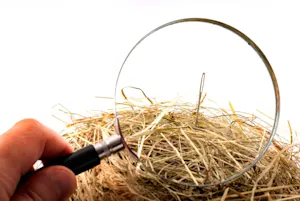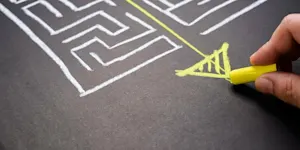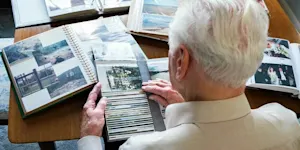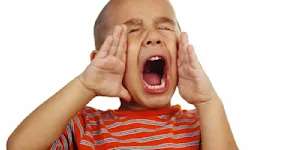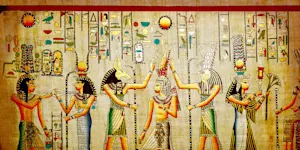What Makes This Word Tick
The word "derail" conjures up a vivid image of a train leaping off its tracks, an event both dramatic and significant. In a broader sense, it can refer to anything going off course, whether it's a conversation, a project, or even one's best-laid plans going awry. There's a certain theatrical undertone to "derail," making it stand out when describing interruptions or unexpected turns.
If Derail Were a Person…
Imagine Derail as a mischievous character who takes pleasure in nudges that transform an ordinary path into something rather unexpected. With a knowing wink, Derail thrives in moments when routines are shaken up, becoming the unexpected guest who spices up a rather predictable party.
How This Word Has Changed Over Time
Originally rooted in the literal sense of a train leaving its tracks, "derail" has evolved to cover much more metaphorical ground. Nowadays, we see it used in contexts from politics to personal life, describing anything that takes a sudden or negative turn. The expansion beyond railways shows just how adaptable our language can be.
Old Sayings and Proverbs That Use Derail
While "derail" might not feature heavily in timeworn sayings, the concept it represents has always been around. Phrases like "throw a wrench in the works" echo similar sentiments, underscoring unexpected disruptions that can change the course of events.
Surprising Facts About Derail
Did you know that the word "derail" is a relatively recent addition to English? It made its first appearance in the early 19th century as railway travel became more common. It's rather fitting that as our modes of transport advanced, so too did our vocabulary to capture the essence of such new experiences.
Out and About With This Word
You might spot "derail" in conversation anytime someone talks about plans being derailed by unexpected weather, a surprise scheduling conflict, or even a juicy piece of gossip that changes the course of an event. It's a go-to descriptor for those annoying little hiccups in life.
Pop Culture Moments Where Derail Was Used
"Derail" has been used in various movies and TV shows as a metaphor for events spiraling out of control. Whether it's a heist gone wrong in a caper film or a politician's campaign stumbling over a scandal, the word captures the chaos and drama perfectly.
The Word in Literature
In literature, "derail" appears frequently in thrillers and dramas where a twist is key to the plot. It serves as the moment when everything changes—when the protagonist's carefully laid plans come crashing down, often leading to gripping scenarios and tension.
Moments in History with Derail
The Great Stock Market Crash of 1929 could be described with the spirit of "derail," as it took the booming economy of the 1920s completely off its tracks. Although the word might not be used in direct quotes from the period, it's a fitting metaphor for such a swift change in fortune.
This Word Around the World
In French, the word for derail is "dérailler," which closely mirrors the English. Across cultures, the metaphorical sense often translates similarly, emphasizing the universal recognition of plans going astray. In Spanish, the verb "descarrilar" reflects this idea too.
Where Does It Come From?
"Derail" comes from the French word "dérailler," combining "de" meaning "off" and "rail" meaning, quite literally, "rail." This origin paints a clear picture of the word's roots in the age of rail travel, capturing both the physical and metaphorical sense of going off track.
How People Misuse This Word
Some folks might use "derail" when they really mean to say "interrupt" or "disturb." While these actions can lead to derailment, using the term too loosely might muddle its more robust implications of complete diversion from an intended path.
Words It’s Often Confused With
Derailed vs. Deraignment: The former's about going off track; the latter's more a judicial term.
Divert: While similar, divert suggests a purposeful change rather than an accidental or unwanted one.
Disturb: This might simply interrupt temporarily without causing a complete derailment.
Additional Synonyms and Antonyms
Synonyms for "derail" include "disrupt," "upend," and "sidetrack." Its antonyms would be "maintain," "continue," and "follow through," depicting the smooth sailing we all hope for but rarely attain.
Want to Try It Out in a Sentence?
Just when we thought the meeting was going smoothly, an unplanned power outage managed to derail the entire agenda.


